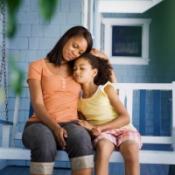 The world is full of people who survived the experience of being bullied while growing up. The wounds bullying can inflict on one’s self-esteem can ooze throughout life. Sticks and stones may break your bones, but names can, in fact, hurt you. The good news is people can heal from bullying. Psychotherapy can help promote that healing.
The world is full of people who survived the experience of being bullied while growing up. The wounds bullying can inflict on one’s self-esteem can ooze throughout life. Sticks and stones may break your bones, but names can, in fact, hurt you. The good news is people can heal from bullying. Psychotherapy can help promote that healing.
Children and teens may be bullied for any number of reasons—weight, gender, sexuality, ethnicity, clothes, social difficulties, interests, and behaviors related to mental health conditions among them. The terms bullies use to label their victims, such as “fat,” “stupid,” “ugly,” etc., may be absorbed into the victim’s self-identity at a tender, vulnerable time in their development. If fully digested, the bully’s taunts may become the victim’s inner voice. The negative judgments may become distorted core beliefs.
Distorted beliefs can limit the choices survivors of bullying make in their social and professional lives. Children who start out as outwardly expressive may turn inward to protect themselves from further ridicule. They may gravitate toward compassionate adults for social interaction rather than peers. Many survivors continue to reenact their role of disempowered victims in the workplace and social spheres. It may be difficult to see themselves as adults rather than the defenseless children they once were.
Others may lack empathy for lovers and friends (“Nobody ever cared for my feelings, so why should I care about theirs?”). Or they may become loners and/or disdainful of humanity in general. Some project their conditioned self-hatred onto people with whom they engage. When victims of bullying hear others whisper or giggle, they may become paranoid they are the brunt of malicious jokes. They may keep to themselves in the workplace and be regarded as cold or unfriendly by coworkers.
Children tend to benefit from parents who offer comfort and invalidate the bully’s actions. Kids who seek comfort from their parents but are ridiculed instead (“Don’t be a crybaby,” “Grow up,” etc.) may have deeper scars. Children who are bullied or abused at home have a greater risk of being bullied at school as well. They may conclude that if a majority of people in their life regard them negatively, they have it coming. Their wounds can be profound. A large number of male survivors do not report bullying to parents or school staff because they feel shame and emasculation from the abuse. Keeping the abuse a secret and receiving no comfort, support, or invalidation of the bully from others may leave them with hurt feelings, damaged egos, and severe emotional scars.
Many survivors of bullying have an abundance of empathy for others. They report that hearing about or observing others being bullied is triggering for them. Even as they are quick to comfort and support others, however, they may be strangers to the concept of self-empathy. The shame and self-hatred that resulted from being bullied may have arrested their development of this important life skill. Labeling themselves as “garbage” because they were treated as such can lead them to falsely believe there is something inherently lacking in their personhood. Consequently, they can feel like outcasts.
Cognitive therapy and strengths-focused counseling are essential components in therapy treatment for survivors of bullying. The goals include:
1. Adult Perspective to Replace the Traumatized Child Perspective
In treatment, the individual is encouraged to understand that their adult perspective on the bullying should be vastly different and more logical than their child perspective. The child’s perspective of the survivor (which deems the bully’s opinion as expert and still dominates the adult survivor’s beliefs) must be put to rest—just as other childhood beliefs such as Santa Claus, the Tooth Fairy, and the Easter Bunny have been.
Consider an individual who was teased about their weight and called unflattering names by their bullies. The child self could be convinced that people of a size that is larger or smaller than average deserve to be shunned by others. The grown-up self can see the ignorance and cruelty in such a claim. The survivor’s new perspective must be reality-based: the bullies did not have the right, life experience, empathy, or education to be valid evaluators of anything except whether ice cream is cold.
If the survivor was bullied by their parents, a new perspective would be that the parents’ judgments were verbally abusive and false. The individual must accept the painful fact their parents were profoundly limited in their ability to parent properly and were most likely perpetuating a pattern of abuse that their own parents had imposed upon them.
2. Empowerment
Personal power is an important therapeutic concept for a survivor of bullying: Each individual has personal power (feelings of well-being, self-worth) which can be kept or given to others. Bullies are thieves of others’ personal power. Therapy helps the survivor understand that they have given up enough of their personal power to those long-ago cruel kids in the schoolyard, many of whom had only recently learned to tie their shoes. The survivor will be mindful that others who cruelly judge people deserve no endorsement (agreeing with their opinion).
3. Self-Empathy and Self-Validation
Because the survivor internalized the bully’s words or hatred, they may have lost the ability to see their self-worth. With the therapist’s help, the survivor learns to love and validate themselves.
Bullies are thieves of others’ personal power. Therapy helps the survivor understand that they have given up enough of their personal power to those long-ago cruel kids in the schoolyard, many of whom had only recently learned to tie their shoes.
4. A New Relational Style
Many bullying survivors develop an interpersonal style that is submissive and passive. Others develop a hypervigilant and aggressive style to defend themselves from further attacks. The goal is to evolve to an assertive relational style which seeks reciprocity and respect from people in the survivor’s social orbit.
5. A Balanced View of People
Due to bullying, the survivor may have concluded at a young age that all people are cruel and cannot be trusted. In therapy, they may come to understand that this is black-and-white thinking. The survivor widens their perception by acknowledging that while there are people who hurt others, there are also people who extend kindness and trustworthiness. The survivor develops an ability to distinguish between these two types of people.
6. Recognition That Bullying Is About the Bully, Not the Victim
Many children do not have the wisdom or cognitive ability to understand the above statement. They tend to regard peers as valid critics. In reality, many bullies have been bullied themselves, either at school or within their own home. Bullying others allows them to reenact their experience from a position of power. Bullies detect a vulnerability in their victims and target that vulnerability. The victim is essentially the bully’s scapegoat.
7. Positive Core Belief and Improved Self-Esteem
In therapy, the survivor learns to let go of the distorted negative core belief (“I am ugly,” “I am stupid,” “I am a loser”) that the bully planted. The survivor comes to understand that defining themselves by others’ words and treatment is a losing plan that can fluctuate depending on the company we keep. The survivor develops a vigilance for correcting the automatic negative self-talk that they have carried since childhood. The result is an enduring positive and reality-based core belief and self-esteem derived from the survivor’s values, behaviors, and accomplishments.
There is a lot of work to be done in closing the wounds left by bullying, as the above goals indicate. Because “old habits die hard,” the survivor must be patient as they proceed through the healing process. Baby steps toward self-love may begin to occur from the start of therapy. In time, the self-confidence a survivor develops in therapy may provide new positive ways to navigate life. It may also afford the survivor new opportunities that were once falsely believed to be out of reach.
References:
- Lyness, D. (2013). Helping kids deal with bullies. Retrieved from http://kidshealth.org/en/parents/bullies.html#
- Support the kids involved. (n.d.). Retrieved from http://www.stopbullying.gov/respond/support-kids-involved

The preceding article was solely written by the author named above. Any views and opinions expressed are not necessarily shared by GoodTherapy.org. Questions or concerns about the preceding article can be directed to the author or posted as a comment below.

 How to Talk to Your Child About Bullying
How to Talk to Your Child About Bullying What If My Child Is the Bully? 3 Dos and 3 Don’ts
What If My Child Is the Bully? 3 Dos and 3 Don’ts A Parent's Guide to Bullying: Fight Back or Process It?
A Parent's Guide to Bullying: Fight Back or Process It?

